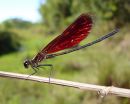(Press-News.org) Nasal drops of harmless bacteria can inhibit a related bug that sometimes causes meningococcal disease, according to new findings published online in Clinical Infectious Diseases. The study--conducted among college students, a group at higher risk for this often serious illness--suggests a new approach that could help suppress outbreaks of the disease, if supported by future research.
Meningococcal disease is caused by Neisseria meningitidis, which can infect the lining of the brain and the spinal cord, causing meningitis. Strains of the bacteria can also cause serious bloodstream infections. But N. meningitidis can also live silently in a person's nose and throat, without illness. These "colonized" carriers can spread the pathogen to others through close contact.
In the study, researchers placed drops containing low doses of Neisseria lactamica, a related but harmless bacterial strain, into the noses of 149 healthy university students in the United Kingdom. A control group of 161 students received drops of saline instead. Nose swabs were taken at regular intervals over six months and tested for both types of bacteria.
Among students who received the N. lactamica drops and became colonized, the harmless bacteria appeared to prevent N. meningitidis from colonizing the students' throats. The "good" bacteria also displaced the worrisome pathogen in those who were already carrying it when the study began. The effect was seen after just two weeks, when the number of students carrying N. meningitidis in their upper airway dropped by 9.5 percent among those who were also colonized by N. lactamica using the drops. The effect lasted for at least four months.
"It's the first time that anyone has taken a bug--a friendly bacterium--and has shown that it changes the way that you can become colonized by the meningitis bacterium, Neisseria meningitidis," said study author Robert C. Read, MD, of the University of Southampton in the United Kingdom, who described the study as a "proof of principle" with intriguing implications.
Meningococcal vaccines induce high levels of antibodies in the blood to ward off infection, but current vaccines also limit "carriage" of N. meningitidis in the throat, preventing its spread from one person to another. The drop in carriage seen in this study was faster and more persistent than that seen after vaccination. The harmless bacterial strain was also active against more varieties of N. meningitidis.
The findings suggest that N. lactamica may one day help suppress meningococcal outbreaks as a bacterial medicine. Before then, Dr. Read noted, more research is needed, including to confirm that N. lactamica is entirely harmless in a wide population and that it does not change genetically while living in the airway. Determining how to improve carriages rates of N. lactamica also will be necessary before the approach can advance, Dr. Read said.
Fast Facts
Meningococcal disease is caused by Neisseria meningitidis, bacteria that can infect the lining of the brain and spinal cord, causing meningitis. It can also cause serious bloodstream infections.
The study findings suggest a possible new approach for preventing outbreaks of the disease using a related but harmless type of bacteria, Neisseria lactamica, to displace the disease-causing pathogen in the upper airway.
More research is needed to support the findings and refine the approach before it can be used in a real world setting to prevent disease.
INFORMATION:
Editor's note: The study authors' affiliations, acknowledgments, and disclosures of financial support and potential conflicts of interests are available in the article. The article is embargoed until 12:01 a.m. EDT on Thursday, March 26. This pre-publication link is for media access only:
Nasal Inoculation of the Commensal Neisseria lactamica Inhibits Carriage of Neisseria meningitidis by Young Adults: A Controlled Human Infection Study
http://www.oxfordjournals.org/our_journals/cid/prpaper.pdf
Clinical Infectious Diseases is a leading journal in the field of infectious disease with a broad international readership. The journal publishes articles on a variety of subjects of interest to practitioners and researchers. Topics range from clinical descriptions of infections, public health, microbiology, and immunology to the prevention of infection, the evaluation of current and novel treatments, and the promotion of optimal practices for diagnosis and treatment. The journal publishes original research, editorial commentaries, review articles, and practice guidelines and is among the most highly cited journals in the field of infectious diseases. Clinical Infectious Diseases is an official publication of the Infectious Diseases Society of America (IDSA). Based in Arlington, Va., IDSA is a professional society representing nearly 10,000 physicians and scientists who specialize in infectious diseases. For more information, visit http://www.idsociety.org. Follow IDSA on Facebook and Twitter.
A decade on from the Northern Nigeria polio vaccination boycott and its global costs to the polio eradication initiative, a new report examines global issues affecting vaccine confidence and hesitation since the new millennium.
The State of Vaccine Confidence Report from researchers at the London School of Hygiene & Tropical Medicine (published 26 March) analyses some of the vaccine confidence issues that have occurred over the past decade with a range of vaccines, reports on strategies that have had positive impacts on engaging populations and building trust and confidence, ...
New research from The University of Manchester out today (26 March) concludes that there is limited evidence to show that xylitol is effective in preventing dental cavities in children and adults.
Xylitol is a natural sweetener that is widely promoted globally, and can be found in wide range of everyday products including sugar-free chewing gum, toothpaste, gels, lozenges and sweets.
Xylitol is a popular sugar substitute in sweets and it is already known to cause less damage to teeth than sugar. It has also been suggested that the addition of xylitol to products may ...
ROCHESTER, Minn. -- As employees and employers face higher health care costs, work site wellness are becoming increasingly more important to help control the costs of health care and encourage healthy lifestyle behaviors among the workforce, a Mayo Clinic study says.
Research published this month in the Journal of Occupational and Environmental Medicine shows that members of Mayo Clinic's employee wellness center, the Dan Abraham Healthy Living Center (DAHLC), who regularly participated in wellness activities, experienced significant weight loss and health care costs ...
Before a male damselfly hot-headedly enters into a duel of aerial sparring, it first works out its strategy. It gives its opponent's wings a once-over to assess its strength, knowing that more transparent wings and larger red spots generally show a stronger rival. Those who then decide to engage in long fights either try to wear their opponent down, or dazzle them with brilliant aerial moves that are too hard to follow. These damselfly war game strategies are set out in a study published in Springer's journal The Science of Nature - Naturwissenschaften. Two research groups ...
By combining observations from the Japan-led Suzaku X-ray satellite and the European Space Agency's infrared Herschel Space Observatory, scientists have connected a fierce "wind" produced near a galaxy's monster black hole to an outward torrent of cold gas a thousand light-years across. The finding validates a long-suspected feedback mechanism enabling a supermassive black hole to influence the evolution of its host galaxy.
"This is the first study directly connecting a galaxy's actively 'feeding' black hole to features found at much larger physical scales," said lead ...
The American Gastroenterological Association (AGA) has released new guidelines on the management of asymptomatic neoplastic pancreatic cysts found incidentally during computed tomography (CT) or magnetic resonance imaging (MRI). The author of a commentary being published in Annals of Internal Medicine explains how the AGA's bold new recommendations will affect the way physicians consider diagnostic testing. The new guidelines back away from previous recommendations that were more aggressive. Rather than promote invasive work-up, surveillance, or surgery for typical patients, ...
After six years of painstaking research, a UCLA-led team has validated the first standardized protocol for measuring one of the earliest signs of Alzheimer's disease -- the atrophy of the part of the brain known as the hippocampus.
The finding marks the final step in an international consortium's successful effort to develop a unified and reliable approach to assessing signs of Alzheimer's-related neurodegeneration through structural imaging tests, a staple in the diagnosis and monitoring of the disease. The study is published in the journal Alzheimer's and Dementia.
Using ...
MELBOURNE, FLA. -- Reef-building corals, already thought to be living near their upper thermal limits, are experiencing unprecedented declines as the world's oceans continue to warm. New evidence from scientists at Florida Institute of Technology shows there may be some climate refuges where corals will survive in the future.
The study appears in the March issue of Global Change Biology.
Ph.D. student Chris Cacciapaglia and his advisor, Robert van Woesik, hypothesized that not all regions of the oceans are warming at the same rate.
"The idea was to identify regions ...
Tracking the rotation speed of solid planets, like the Earth and Mars, is a relatively simple task: Just measure the time it takes for a surface feature to roll into view again. But giant gas planets Jupiter and Saturn are more problematic for planetary scientists, as they both lack measureable solid surfaces and are covered by thick layers of clouds, foiling direct visual measurements by space probes. Saturn has presented an even greater challenge to scientists, as different parts of this sweltering ball of hydrogen and helium are known to rotate at different speeds, whereas ...
(New York - March 25, 2015) Induced pluripotent stem cells (iPSCs) -- adult cells reprogrammed back to an embryonic stem cell-like state--may better model the genetic contributions to each patient's particular disease. In a process called cellular reprogramming, researchers at Icahn School of Medicine at Mount Sinai have taken mature blood cells from patients with myelodysplastic syndrome (MDS) and reprogrammed them back into iPSCs to study the genetic origins of this rare blood cancer. The results appear in an upcoming issue of Nature Biotechnology.
In MDS, genetic mutations ...


